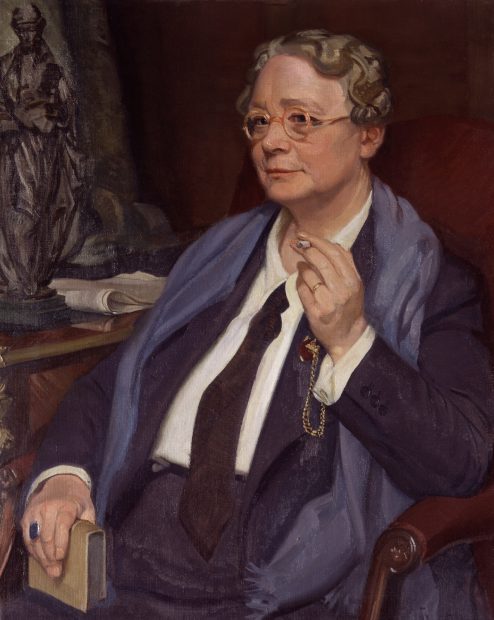According to the DCMS, around 196,000 people work in Britain’s publishing industry. Evidence suggests that during lockdown, there has been an uptake in book sales of around 15% percent. Within that sector, crime fiction in particular is enjoying a new ‘golden age’. Gone are the whimsical creations of Dorothy L Sayers and Agatha Christie. ‘In’ are a hardboiled eclectic bunch of crime-solvers, many, but not all, from Scotland. Sales of crime fiction have risen by an estimated 120,000 copies year on year and ‘Tartan-noir’ has become a globally recognised genre.

How crime fiction and IP crime connect
Sir Arthur Conan Doyle’s Sherlock Holmes was a benchmark in the formation of crime fiction as a genre. 'The Adventure of the Engineers Thumb' was an early story by Doyle featuring Holmes. Without going into too many details, an ‘hydraulic engineer’ called Victor Hatherley calls in at Sherlock’s Baker Street residence to reveal the loss of a thumb. They soon discover that the reason why the engineer’s thumb was removed by a meat cleaver as he clung on to a window frame was because of an illegal counterfeiting operation. A ‘hydraulic stamping machine’ was being used to fabricate fake coins:
“Indeed, it is a likely ruse enough,” observed Bradstreet thoughtfully. “Of course there can be no doubt as to the nature of this gang.”
“None at all,” said Holmes. “They are coiners on a large scale, and have used the machine to form the amalgam which has taken the place of silver.”
Fakery and forgery have since become mainstays of the crime writers’ art. Just as copyright guarantees and protects the incomes of crime writers as they forge new markets for new stories, they too can fall victim to copyright infringement and IP crime.

Scottish crime author Val McDermid says:
Copyright is about integrity. Tolerating illegality should not be the default option. Without control, there’s no integrity. If you remove my copyright, you remove my integrity. You can’t unread my book once you’ve stolen it. I can’t sell it to you again.
The cost of counterfeits
In the digital era, IP crime is no longer simply a matter of hydraulic engineers and stamping machines. It’s about online access to millions of pounds worth of revenue that would otherwise have gone to creators and society at large. It is estimated that 3% of goods imported into the UK are counterfeit. The overall value of the counterfeit market in the UK is believed to be worth over £13 billion. Last year, Nominet suspended over 29,000 domains because of criminal activity. In fact, the rise of the crime fiction industry describes the diversification of the actual crime industry.
Crime fiction creates jobs and generates wealth. Crime destroys jobs and degenerates society. Sadly, this simple and apparently uncontroversial statement does not reflect our attitude to IP infringement and crime. Recent research on counterfeit goods commissioned by the Intellectual Property Office reveals a surprisingly mixed picture. Generally speaking, awareness of the existence of IP crime is lower than one might expect and attitudes to IP crime are surprisingly ambivalent.

Over a quarter of the participants in the IPO’s survey were characterised as either ‘sceptical’ or ‘defiant’ when confronted with information concerning IP crime:
There was also a minority, ranging from 17-31% across all messages, who were sceptical and felt that those publishing them have their own agendas.
15% of people who undertook the survey, after appraising an array of facts regarding the nature of IP crime, stated that they would still continue to buy counterfeit goods. Only 63% of the participants said that they would never knowingly buy counterfeit goods.
In order to protect crime writers, the crime fiction industry and all other industries and consumers, the hearts and minds of the shopping public must be won over. To do this, the crucial role of the average consumer in the development of IP law and practice must be made obvious so that everyone has a stake in honest trade.
True IP crime facts from the IPO counterfeit goods research (2020)
- Counterfeiting has a considerable impact on the rights of workers around the globe. The lack of control over working conditions and respect of employment rights places workers who produce counterfeit goods, many of them children, in very vulnerable positions.
- According to the United Nations Commission on Crime Prevention and Criminal Justice, counterfeiting is now the second largest source of criminal income worldwide.
- Organised criminals behind websites selling counterfeit goods are known to use credit card details and personal information for other fraudulent scams.
- Figures from the UK government show that the annual loss to the economy through counterfeiting and piracy is £9 billion, plus 80,500 job losses each year.
- Legitimate companies face competition from counterfeiters who steal their intellectual property without paying taxes or complying with quality standards. This damages the legitimate brand’s reputation, profit and workforce.
To keep in touch, sign up to email updates from this blog, or follow us on Twitter.
2 comments
Comment by Paula Davy posted on
Hi Paulus
Copyright is a private right. Where an individual or company believes their image has been used without the correct licence or permissions, it is open to that individual, company or its agents to approach the business or individual in question to pursue the infringement. For more information on how to enforce your intellectual property, please see: https://www.gov.uk/defend-your-intellectual-property.
I hope this information is helpful.
Many thanks
Paula
Comment by Paulus J.J. Spijkers posted on
As painter and text writer (book author), I use the name Paul us Spijkers®. Is a simple / not too difficult method available for control by myself, to react properly on abuse of copyright, regarding my paintings and/or texts?